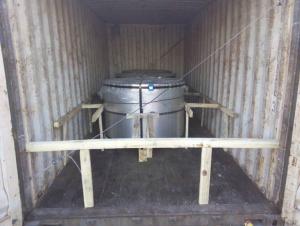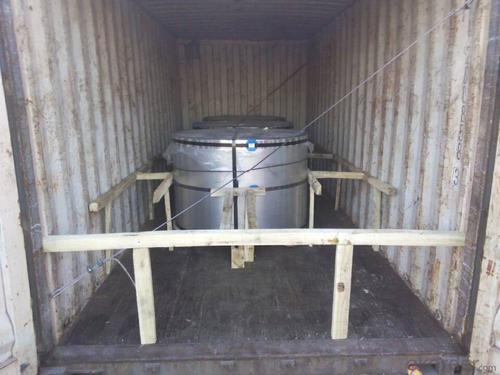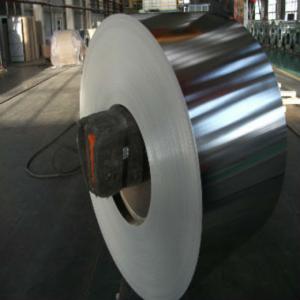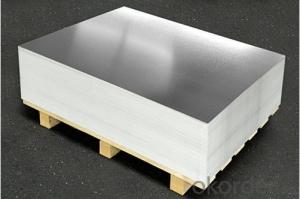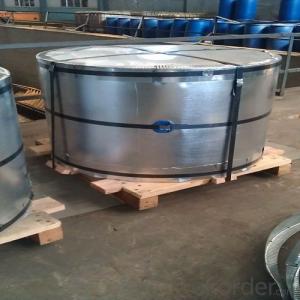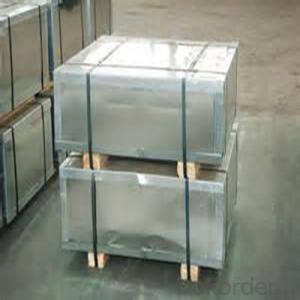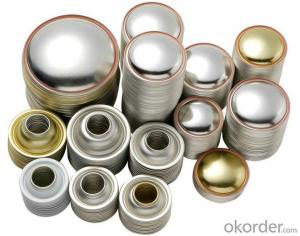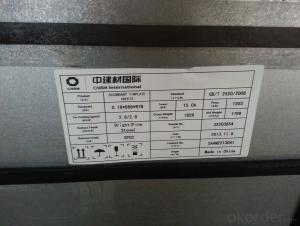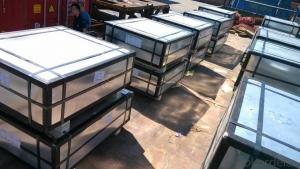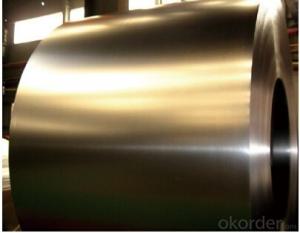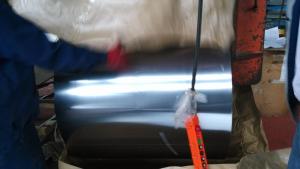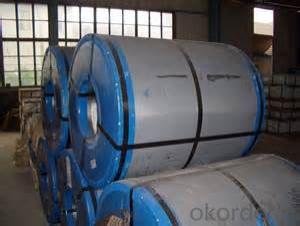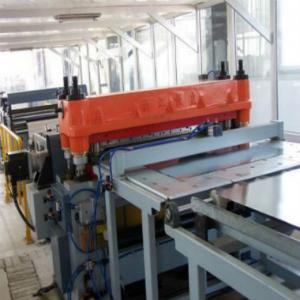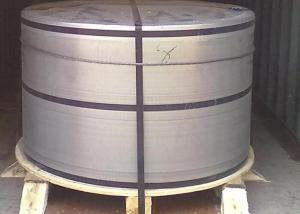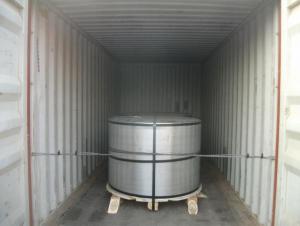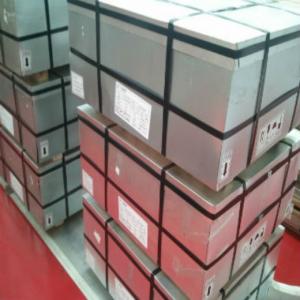Tinplate in SPCC/MR Grade for Fancy Cans
- Loading Port:
- China main port
- Payment Terms:
- TT OR LC
- Min Order Qty:
- 25 m.t.
- Supply Capability:
- 30000 m.t./month
OKorder Service Pledge
OKorder Financial Service
You Might Also Like
1. Products: Tinplate
Tinplate and TFS are widely used for making all types of containers such as artistic cans, tea cans, painting cans, chemical package cans and metal printing etc. Its applications are not limited to containers; recently, they have also been used for making electrical machinery parts and many other products.
2. Specification:
Our goods enjoyed high quality both at home and abroad. We can supply tin free steel as follows:
Technical standard | JISG3303 and GB/T 2520-2008 |
Steel Type | MR / SPCC |
Thickness | From 0.15mm to 0.50mm (Tolerance +/- 0.01mm) |
Width | Normally 600-1050mm (Tolerance +3/-0 mm) |
Coating | 2.8/2.8g/m2 , 2.8/5.6g/m2 ,1.1/1.1 g/m2 |
Temper & Annealing | T1-T5, DR7-8, TS230-TH435, T49-T65(+/- 4) |
Surface Treatment | Bright & Fine Stone & Stone & Silver & Matt |
Payment terms | Letter of Credit (L/C), Telegraphic transfer (T/T) |
Price terms | CFR & CIF price term |
Delivery time | Within 60 days after received L/C or T/T down payment |
Packing | High quality shipping packing which contains thin plastic film, rust-proof paper, metal cover, metal angles and strap sand pallet. |
Minimum order Quantity(MOQ) | 25 metric tons (1X 20'' container) |
3. Pictures:
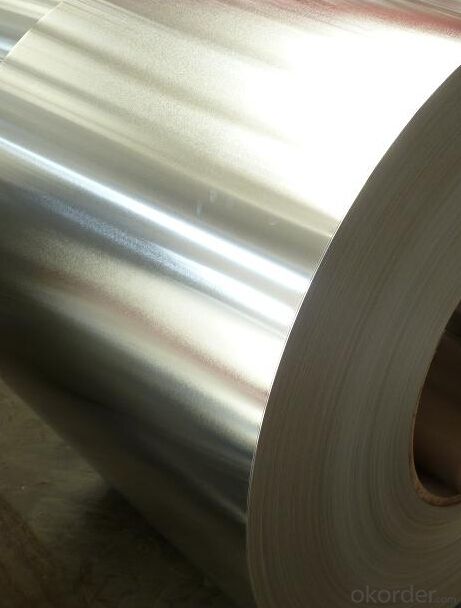
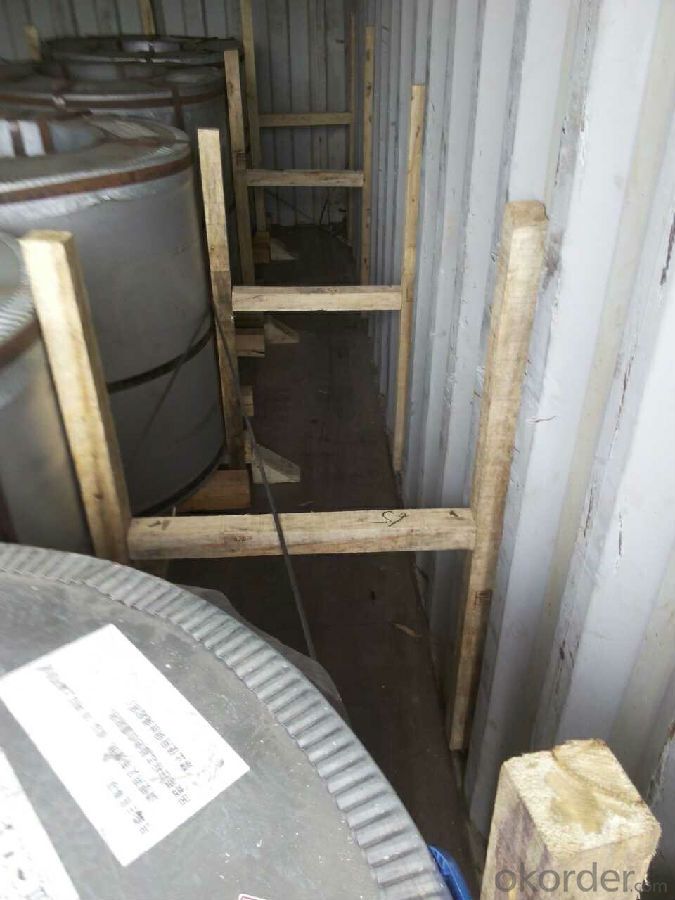
4. Features of the factory price/ tin free steel/tinplate/tfs/tmbp/etp/spte:
Beautiful Appearance
Excellent Paintability & Printability
Excellent Formability & Strength
Excellent Corrosion Resistance
Excellent Solderability & Weldability
5. FAQ:
We are one of the main producers in China for tinplate, tin free steel and also TMBP. At present, our productivity is more than 450000 MT/year.
For more information about our products or company, pls contact us freely.
Welcome your enquiries and orders.
- Q: What are the main regulations governing tinplate production?
- The main regulations governing tinplate production vary by country and region. However, some key regulations typically include guidelines on the use of materials, such as the type and thickness of tin coatings, as well as regulations on production processes to ensure safety and quality standards are met. These regulations may also cover areas such as labeling, packaging, and transportation requirements to ensure proper handling and traceability of tinplate products.
- Q: How does tinplate compare to stainless steel in terms of properties and applications?
- Tinplate and stainless steel have different properties and applications. Tinplate is a steel coated with a thin layer of tin, providing corrosion resistance and a shiny appearance. It is commonly used for packaging food and beverages, as it is lightweight and easily formed into cans. On the other hand, stainless steel is an alloy with high corrosion resistance and strength. It is widely used in various industries, including construction, automotive, and kitchen appliances, due to its durability and aesthetic appeal. While both materials offer corrosion resistance, stainless steel is generally stronger and more versatile, making it suitable for a wider range of applications compared to tinplate.
- Q: What are the common uses of tinplate?
- Tinplate is commonly used for packaging food and beverages, such as cans for canned fruits, vegetables, and soups. It is also utilized in the manufacturing of aerosol cans, bottle caps, and metal closures. Additionally, tinplate finds applications in the production of electrical equipment, automotive parts, and various household items.
- Q: Can tinplate packaging be used for personal care products?
- Yes, tinplate packaging can be used for personal care products. Tinplate is a durable and versatile material that provides excellent protection for various products, including cosmetics, lotions, and other personal care items. Its ability to resist corrosion and maintain the product's quality makes it a suitable choice for packaging in the personal care industry.
- Q: What are the food safety regulations for tinplate packaging?
- The food safety regulations for tinplate packaging include ensuring that the tinplate used is food-grade and does not contain any toxic substances that could contaminate the food. The packaging should also be properly sterilized to prevent any bacterial growth. Additionally, tinplate packaging should be designed to prevent any leakage or contamination during storage and transportation.
- Q: How is tinplate used in the confectionery industry?
- Tinplate is commonly used in the confectionery industry for packaging purposes. It is utilized to create tin cans and containers that are resistant to corrosion, ensuring the longevity and freshness of confectionery products. Tinplate packaging also provides a protective barrier against light, oxygen, and moisture, thereby preserving the flavor, texture, and quality of the confectionery items. Additionally, tinplate containers can be easily customized with attractive designs and labels, enhancing the visual appeal and marketability of the confectionery products.
- Q: What are the common safety features for tinplate packaging?
- Some common safety features for tinplate packaging include tamper-evident seals, child-resistant closures, and durable construction to prevent breakage or leakage. Additionally, many tinplate packaging products are also made with food-grade materials to ensure the safety of the contents.
- Q: How does tinplate affect the overall weight of packaging?
- Tinplate has a significant impact on the overall weight of packaging as it is a lightweight material. It allows for the production of durable and sturdy packaging solutions while maintaining minimal weight, resulting in reduced transportation costs and environmental impact.
- Q: Can tinplate be used for high-temperature applications?
- No, tinplate is not suitable for high-temperature applications as it has a low melting point and may lose its structural integrity at elevated temperatures.
- Q: How does tinplate contribute to the reliability of telecommunications devices?
- Tinplate contributes to the reliability of telecommunications devices by providing a protective coating that prevents corrosion and ensures longevity. It helps safeguard the internal components of these devices from external factors such as moisture, humidity, and oxidation, ensuring uninterrupted functionality and improved performance. Additionally, tinplate's conductivity properties enable efficient transmission of signals and reduce electromagnetic interference, further enhancing the reliability of telecommunications devices.
Send your message to us
Tinplate in SPCC/MR Grade for Fancy Cans
- Loading Port:
- China main port
- Payment Terms:
- TT OR LC
- Min Order Qty:
- 25 m.t.
- Supply Capability:
- 30000 m.t./month
OKorder Service Pledge
OKorder Financial Service
Similar products
Hot products
Hot Searches
Related keywords
